|
Heverlee (Belgium), 16th December 2019: In the fight against climate change, Don Bosco Youth-Net ivzw, the European network of Salesian youth organisations, has become a member of the Don Bosco Green Alliance, the worldwide collective of young people from the Don Bosco family of institutions, who contribute to global environmental action, thought and policy. The COP25 in Madrid is just over and many people are saying that “We've lost an important opportunity”. Just before the UN Climate Change Conference started, DBYN became a full member of the Don Bosco Green Alliance (DBGA). To become a member of the Don Bosco Green Alliance, you first need to be an organisation or institution in the Don Bosco world: we are. Secondly, you need at least three specific commitments towards protecting and bettering the environment. Here, we have asked you for ideas through a survey a few months ago and the three following commitments came out, which DBYN has approved for joining the DBGA:
Q&A Together with your suggestions, there were also some questions related to these commitments and our membership in the Don Bosco Green Alliance. Here are our answers (we have summarised some questions): Will it be an extra cost for DBYN? Or an investment? Let's be clear: to stop or limit climate change, we (human beings) have to pay and we have to make investments. Sometimes with money, but even more importantly, we have to change some of our habits and our “Western” way of living: this seems to be the tricky part. Why should I take the train when I can save 5 hours taking a flight? In order to do this, we have to invest time and maybe money, but booking in advance makes even a train ride cheaper than a flight. Some people might have the feeling that they are losing flexibility and we have to change our habits. But on the other hand, if we are not doing it, we will have to invest much more in a later time. That is the overall truth. There is also the option to save money and resources: for example, if DBYN manages to organise online meetings (commitment 3a), our expenditures for travelling will get less. It is the same with commitment 3b: if we recycle and reuse material on our own, we can save money and resources and more vegetarian food also means lower costs for the meals (commitment 1). For the second commitment, we just have to use the knowledge and resources that we have in our network meaning that no further investment is needed on this level either. The possibility also exists to allocate new funding possibilities for DBYN and its MOs if we get more engaged in the topic of sustainability. Is it possible to offer organisations customised information about this subject (sustainability, environmental protection, Laudato Si, etc.)? Sure it is. As soon as we will have developed a session on the topic or developed/found good practice within our network, we will let you know. We also cooperate with other INYGOs on that topic on a European level. But we also need your help. If you have a really good practice, example, success story, etc. let us know and we will share it online, but also during our activities. To stop climate change, everybody has to do their part, but overall, we have to work together. The survey for the commitments and our membership in the DBGA are just the start, let us work together for the rest. 🌍 Further information Don Bosco Youth-Net ivzw Naamsesteenweg 37, B-3001 Heverlee • +32 (0)16 48 78 90 [email protected] www.donboscoyouth.net Don Bosco Green Alliance +91 - 982 182 2057 [email protected] www.donboscogreen.org
0 Comments
‘I, Youth Advocate’ was a seminar for youth representatives in partnership with MIJARC Europe organized as a study session in the European Youth Centre of Budapest and took place from the 06-11/10/2019. It aimed to train volunteers of DBYN’s and MIJARC Europe member organisations to become active in advocacy work, relevant for the network.
34 participants, 4 trainers and several experts from all over Europe came together to learn and teach about Human Rights based advocacy. The study session took place in the European Youth Centre of Budapest, which offered us both financial and content based support. Furthermore as the European Youth Centre stands for “Access to Rights” and “Youth Participation” their policy framework was an ideal basis for the learning programme. The first day of the study session we learned about its aims. After that we tried defining ‘advocacy’. This way, the theme became a lot clearer to most of the participants. Next to that we also got an information session about the Council of Europe and how it works. Some participants were already used to work in intercultural groups, but for some is was new and they needed more time to get used to it. The group was however very understanding about that and this only became better during the study session. On Tuesday we learned about the 9 steps of the advocacy circle. Next to these 9 steps, there were also 3 actions explained that you can/have to keep doing during the whole advocacy process. While working in groups with a self-chosen topic, we learned to use the information we had gotten and doing so the information became clearer. After that, there was an information session about the European Youth Forum (YFJ), given by one of its board members. We learned about the Human Rights-based approach of the YFJ, about rights holders and duty bearers and also about the difference between policy and politics. A clear example that was given was about how the YFJ has a collective complaint / a legal case against Belgium about unpaid internships. A first, success resulting from this action was the ban from the European Parliament against unpaid internships. Now, the YFJ is waiting for when and how Belgium will react. The third day, we played a very interesting and educational simulation game. It began with an explanation about the Council of the European Union and its president, the European Council and its president and The European Commission. This was needed to understand what the game was all about and to develop a strategy to play it. To play the game, we were all given a fictive role and in this way we were divided into four groups: the Commission, the European Parliament, the Council (of the European Union) and interest groups. While playing the simulation game, we learned a lot about the legislative procedures that are used in the given organisations and also about lobbying, setting up meetings, who to address and also about listening to the opinions of interest groups and other parties. The last day, we worked in our organisation groups (MIJARC and DBYN). We discussed about what this study session and advocacy in general can mean for our organisations. In smaller groups we then worked on possible actual projects with self-chosen topics. After that there was an information session for all the participants about the European Youth Foundation (EYF), its available grants and how to apply for them. When applying, it is very important to explain to EYF the link there is between your project and Human Rights. The programming Committee (8 youth representatives and 8 governmental representatives) then decides about the approval of the projects. 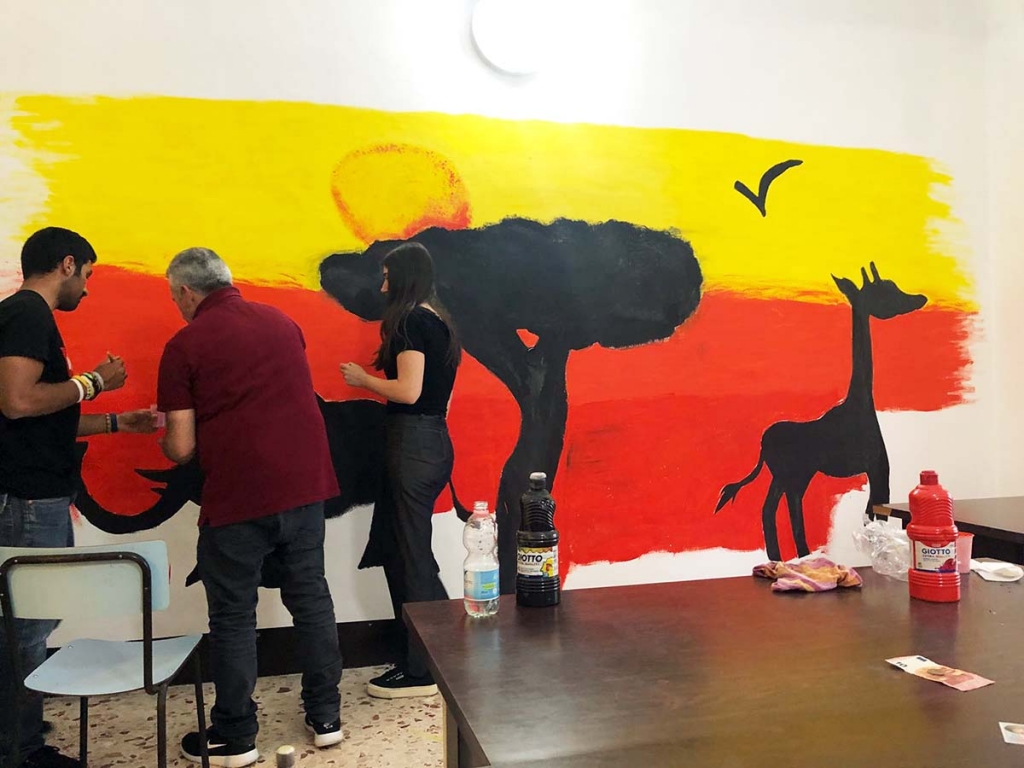 They are children and young people who come by sea, on old boats that are unstable and overloaded, risking their lives almost to every wave. Often they do not understand Italian well and certainly are not aware of all their rights, nor of what awaits them. If they left on their own, or remain alone on arriving, what they may find is a future as clandestines, marginalized. But sometimes, things go differently, because there are also people who do think of them: like the Salesians of the "San Gregorio" community of Catania, in Sicily, which inaugurated a new house yesterday, May 2; its name: Najma, which means star in Arabic. The phenomenon of Unaccompanied Foreign Minors (MSNA) is clearly growing in Italy. And behind every statistical number, there is a life, an existence, that has been uprooted and completely isolated, exposed to forms of social risk such as crime, abuse, violence, poverty ... To offer human and Christian solutions to this phenomenon, the "Salesians for Social - SCS / CNOS Federation" started "M'interesso di te", or “I take interest in you, care for you”, at the beginning of 2018, a program which includes, among other tasks within Catania's Salesian world, the San Gregorio Center, on the outskirts of the city. As early as February, street educators, counselors, psychologists, lawyers and volunteers have been guaranteeing each child intercepted their support and protection, but only yesterday did the Salesians of San Gregorio and the Associazione MetaCometa Onlus officially inaugurate their headquarters. Present at the opening: the Provincial of the Salesians of Sicily, Fr Giuseppe Ruta, the Vicar General of the Archdiocese of Catania, Mgr. Salvatore Genchi, and institutional figures of both the Christian and Muslim religious, civil and social world. At the Catania's Najima "low threshold" center (ie for people in extreme difficulty), the so-called "invisible migrants" - MSNAs or recently of adult age - have the chance to wash, eat hot meals, rest, participate in activities of recreation and socialization. The "Najma" reception center also carries out social mediation work with related institutions and offers orientation courses for study and work, with the creation of study grants and job grants. Since many of the "invisible migrants" are exposed to the risk of addictions, health problems and exploitation, a legal advisory service is also available to them, both criminal and civil, and support in processing their personal document. http://www.infoans.org/en/sections/news/item/5387-italy-najma-house-for-invisible-migrants On 26th April, in the premises of COMECE (Commission of Bishops’ Conferences in the EU) took place the first European gathering of International Catholic Youth Organisations, in which Don Bosco International, as a facilitator and coordinator of the meeting, and Don Bosco Youth-Net as one of the most active Catholic Youth Organisation were represented.
The meeting was opened by Fr. Olivier Poquillon op, secretary general of COMECE, very supportive of this process, as there is a clear need and will from the bishops’ representation in Brussels to have young people’s voices heard by the institutions. The content of the meeting was very diverse: the presence of some organisations in the European Youth Forum, the new policy updates at EU level (such as the new Erasmus+, European Youth Strategy or the difficulties with the current EU grants), the work done with migrants and refugees by the different youth organisations, and the follow up of the Synod on Youth, in order to find possible ways to establish social and political dialogue with different stakeholders at national and EU level. Together with the migration and Human Rights network of the European Youth Forum, DBYN is working on guidelines for the inclusion of young refugees in the work and structures of youth organisations. At the COMEM (Council of members) of the European Youth Forum in Cascais, a draft of the development process of the document and a current draft was presented. Participants contributed with further inputs and best practices tackling challenges youth organisations and young refugees face in order to participate in youth organisations and engage in their decision-making bodies.
Members of the Migration and Human Rights network started to work on the guidelines in June on the Network meeting in Brussels. From there, information was collected by interviews with youth organisations and young refugees, including member organisations of DBYN. At the COMEM a summary of these interviews was presented. The final document is still in process. Whilst this session was an important opportunity for DBYN to stay engaged in the field of Migration and Human Rights and cooperate and get in contact with organisations working on this topic, the COMEM altogether is an essential part of DBYNs advocacy work. Next to updates of current work of the European Youth Forum – e.g. the www.transparencyatwork.org webpage tackling the problem of unpaid and quality internships – it also gives space for exchange of local initiatives and work of member organisations. One of the highlights this time was the policy paper on the Erasmus+ successor programme, which is of big importance for many youth organisations and young Europeans. In June 2017 more than 9,000 unaccompanied foreign minors landed in Italy , vulnerable young people who, after a long voyage to the sea, are alone and exposed to various risks. An answer to this emergency is the figure of the volunteer tutor , introduced by law 47/2017 on "Provisions on measures to protect unaccompanied minors . "
The volunteer tutor is a private citizen who decides to carry out the legal representation of the child only, so that his rights are acknowledged: he supervises the reception conditions, promotes his psycho-physical well-being and monitors his educational and training paths integration. As Salesiani per il Sociale, the emergency of foreign minors interrogates us first and calls us to give concrete answers. Given the multiplication of children arriving in our country, it is necessary to find new and motivated resources. This guide was born to guide all those citizens who want to respond to this appeal , providing all the information and requirements to become a volunteer tutor . The Guidebook is only available in Italian. Click on the Picture to download the guidebook. asmien Beckers (first standing on the right), youth representative for DBYN participated in the first meeting of the European Youth Forum's Migration and Human Rights network. This is a short press release on the event. On 19 and 20 June the European Youth Forum’s Migration and Human Rights Network (MHRN) held its first meeting of 2017 in Brussels. The Network focuses on promoting the social inclusion and empowerment of as well as combatting discrimination against young refugees.
Eight youth organisations participated in the meeting, some of which are joining the Network for the first time. The Network took stock of the work that has been carried out since 2015, while participants exchanged on their organisations’ initiatives and projects. Furthermore, participants agreed on the aims of the network. Among others, the Network aims to motivate youth organisations to include young refugees within their structures, and to ensure that young refugees are involved in decision-making processes. The two main priorities the Network identified for 2017 are:
On the occasion of World Refugee Day on 20 June, Network members participated in the conference ‘Time to be welcome: youth work and integration of young refugees’, where they showcased their projects on non-formal education, advocacy for refugee rights, empowerment and skills development and raising awareness about refugees. The joint press release from the European Youth Forum, the World Organisation of the Scout Movement and the EU-Council of Europe partnership in the field of youth who organised the conference is available here. Hi There! is a play project focused a young refugees and asylum seekers in Brussels. The project aims at developing the soft skills and competences the young refugees and asylum seekers need to successfully integrate in their local community. By the summer of 2018 the project aims to engage several as volunteers in the project as well. Hi There! was initiated by Belgian participants of DBYN activities. During the "Speak up" training course they developed the motivation to do something for young refugees in Belgium, during the "Travel Beyond!" training course they developed the project management skills required to set-up such a project. The volunteers looked for peers who wanted to join the project, resulting in a larger team of volunteers which is still growing. They applied for funding at Droomfonds of the Don Bosco Foundation, for the necessary funding to start the project. At the same time this project shows how institutional funding by the Council of Europe's European Youth Foundation (Speak up) and the European Union's Erasmus+ programme (Travel beyond) can lead to a longterm impact on local level. However, it still requires local financing and a huge effort of volunteers to actually implement the project.
As observer members our youth representatives were not involved in the elections of the new Advisory Council of the Council of Europe, nor voting on the resolutions proposed by the membership. We do however consider our membership a benefit for the network as we are able to exchange opinions and ideas a wide variety of youth work organisations in Europe. At this COMEM we for example learned from EEE-YFU about the "Badgecraft initiative" as online tool for working with competences, or about the "I act, for the prevention of sexual violence" of IFM-SEI, which is their newly developed campaign against sexual violence.
The next Council of Members' meeting will take place in Cascais on the 24th and 25th of November 2017.
Lilli Graf is one of the DBYN representatives. She explains what is her function as volunteer in advocacy work. |
DBYNIn this blog, Don Bosco Youth-Net collects and publishes its news, VLOGS, policy statements and other information linked to our advocacy work. Categories
All
Archives
February 2024
|
- Home
- About
-
Training
- Upcoming activities >
-
Past activities
>
- Youth Guardians
- Rise: Design for emergent futures
- Mental Health in Youth Work
- Yout(h)echnology
- European School of Animators 2023
- The Future is Europe
- Voices of Youth 2022
- Educate to Elevate Youth
- SoS-Safeguarding
- Play It Covid-Safe!
- Coping over coffee
- Statement Coronavirus
- I Youth Advocate
- Camino
- European Summer School of Animators 2019
- The Journey Never Ends
- European Summer School of Animators
- Ready, Steady, Go !
- Advocates for Education
- Common ground
- Rise Up !
- DB4R >
- En Route >
- All Alien
- You(th) for Human Rights
- Generations of Participation - Past training
- Advocacy
- Resources
|
The international secretariat of Don Bosco Youth-Net ivzw is financially supported by the European Union, through its 'Erasmus+'-programme, and by the Council of Europe, through its 'European Youth Foundation'. This website is a publication of Don Bosco Youth-Net ivzw. The website reflects the views only of the author, and neither the European Commission nor the Council of Europe can be held responsible for any use which may be made of the information contained therein.
|
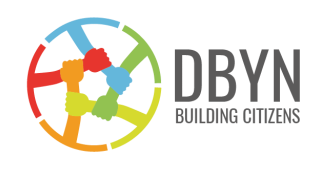
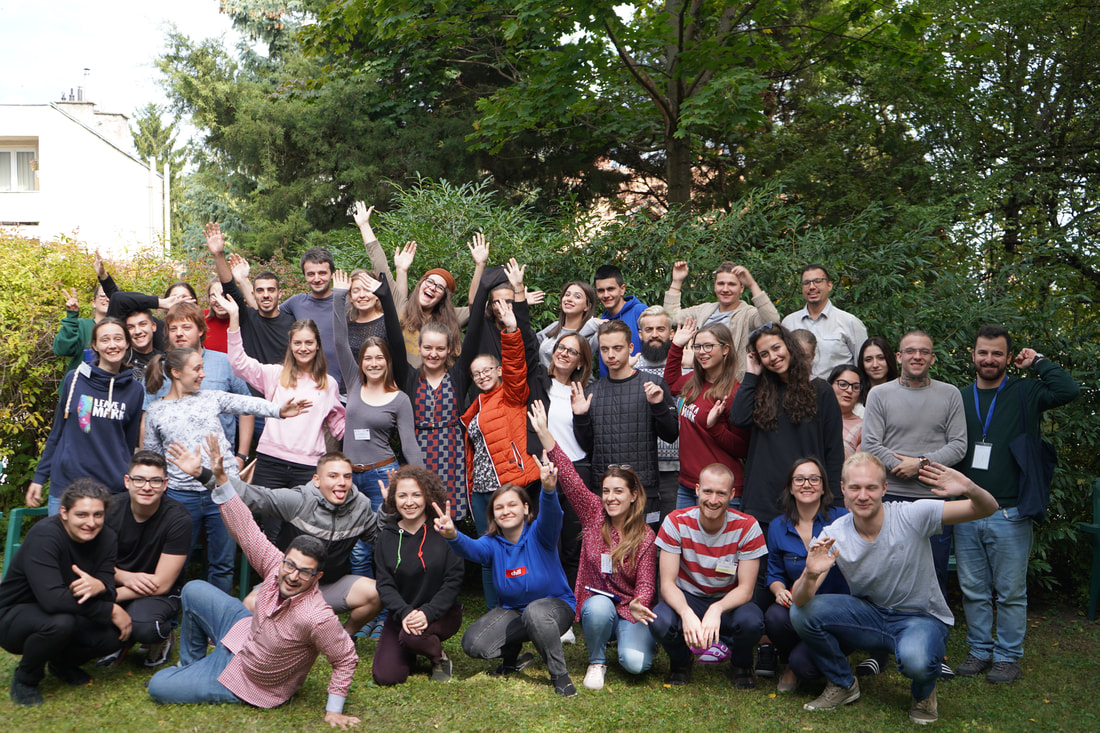
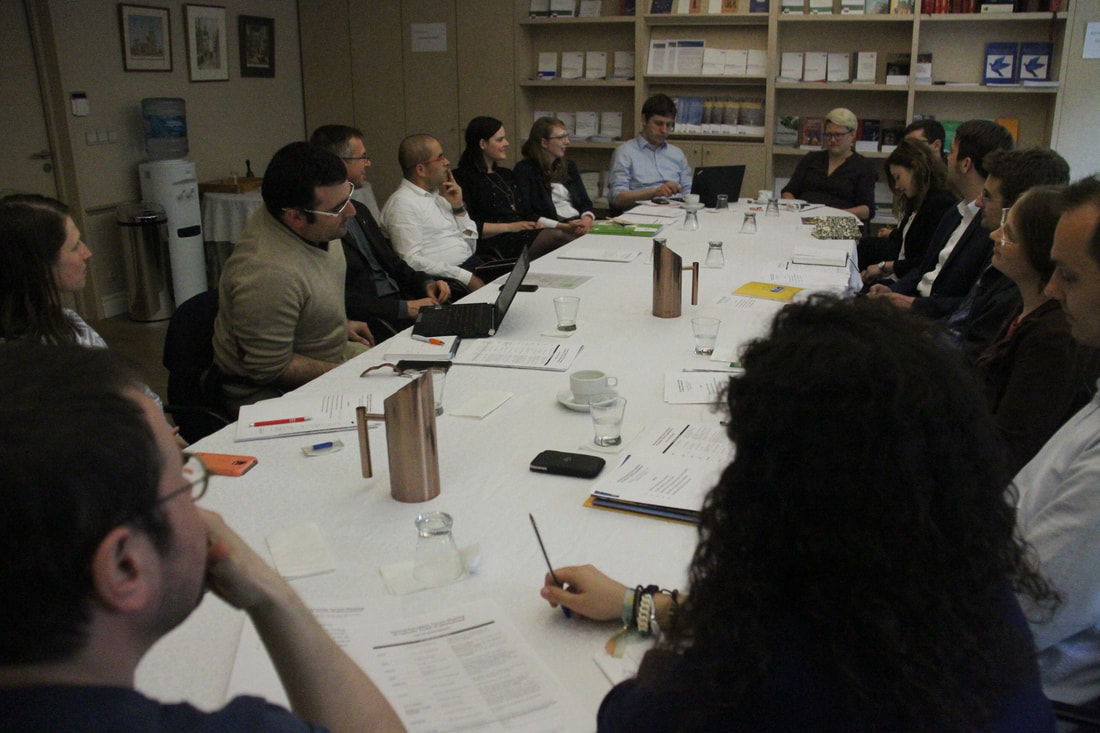
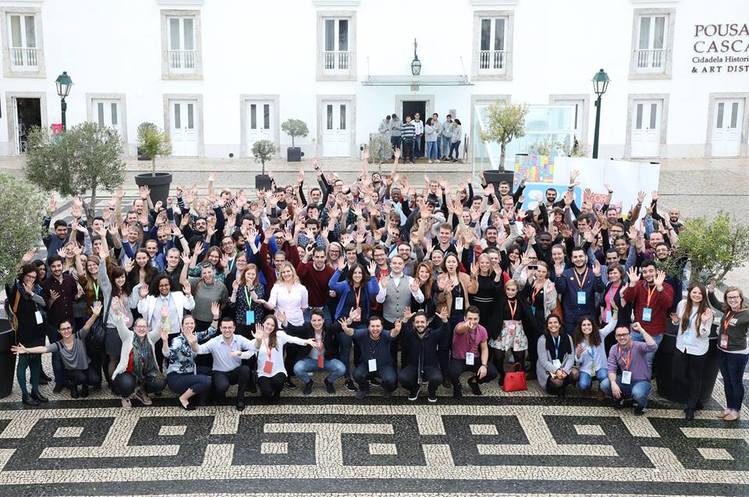
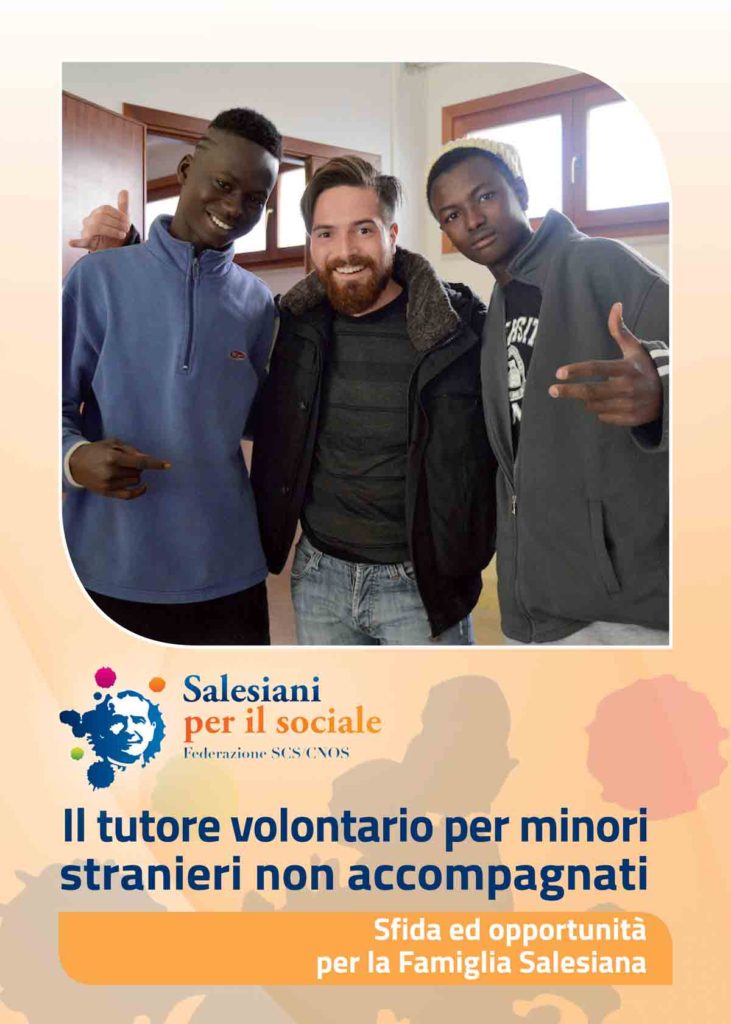
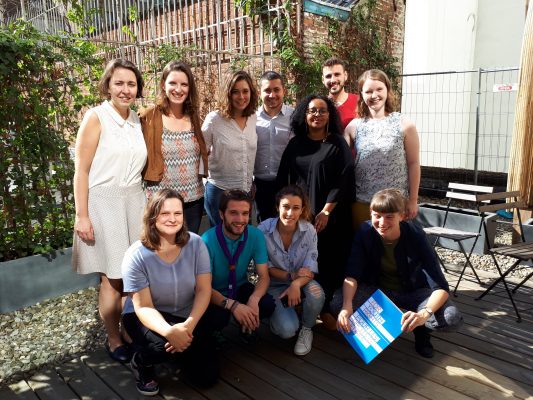
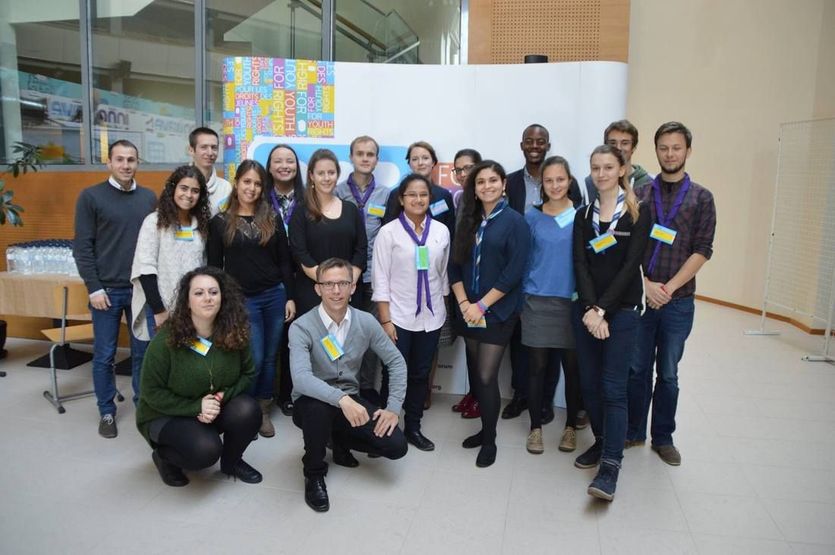
 RSS Feed
RSS Feed
